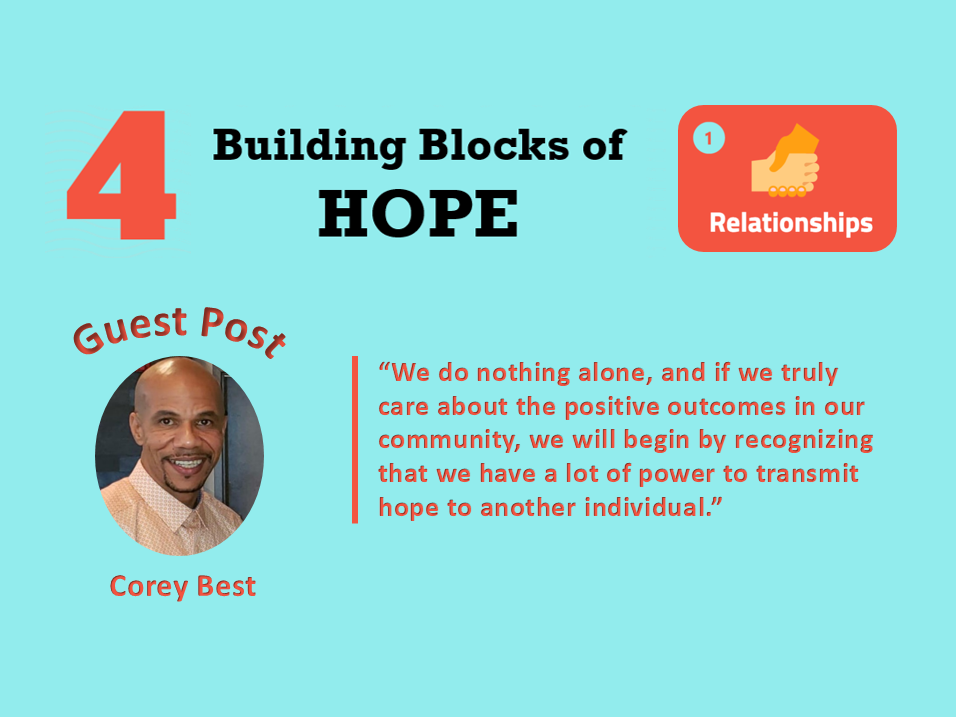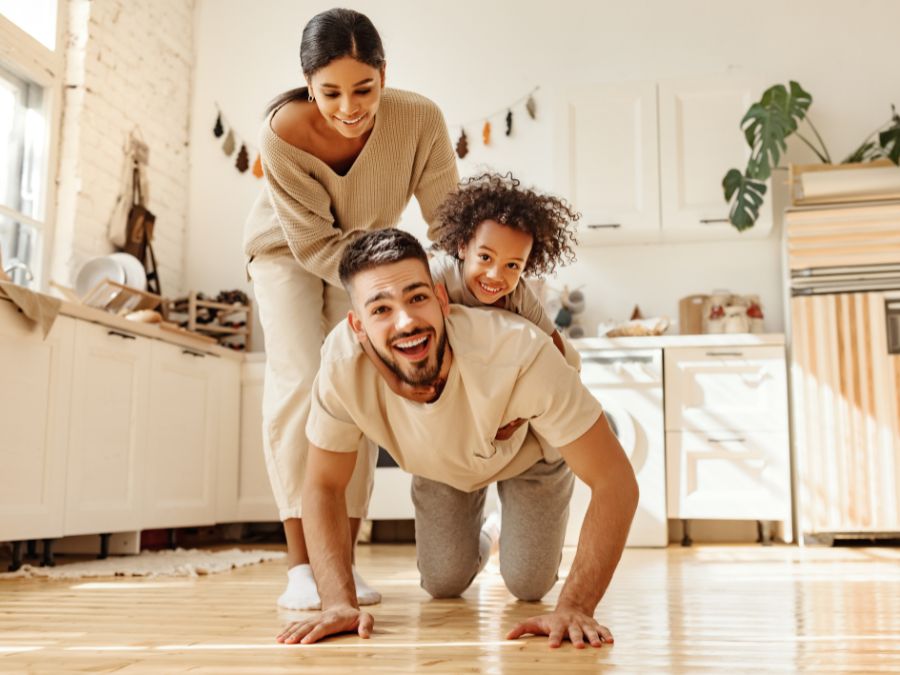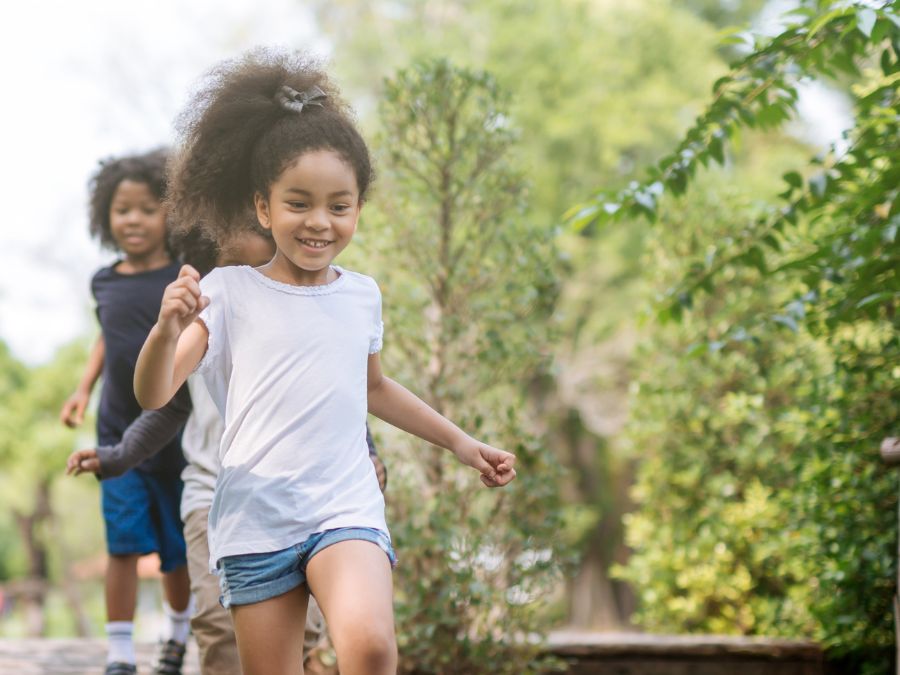
Today’s post is based on an interview with Corey Best, a member of the HOPE National Advisory Board and the Birth Parent National Network (BPNN) | CTF Alliance, which “promotes and champions birth parents as leaders and strategic partners in prevention and child welfare systems reform.”
Can you introduce yourself and your work?
My name is Corey Best, and I’m a family engagement consultant and speaker by title. I stand for justice in the child welfare system, on behalf of systems and parents.
There is a huge gap between authentic relationships and pre-crisis supports and effective interventions for families. I want to play a major role in advocating for non-discriminatory, healthy relationships between parents, systems leaders, and the workforce. We [parents] all have various strengths, and those aren’t often recognized in our child welfare programs, in how we deliver services, and also how we engage with individuals.
Can you talk about how you got interested in HOPE and how that fits in with your work?
I fundamentally believe that HOPE is a causative energy. In our systems, education, healthcare, criminal justice, when we believe that the outcome isn’t possible, HOPE doesn’t exist. When I consider HOPE a causative energy, it means that as I’m building a relationship with another individual, I believe the [healthy] outcome is possible. A parent feels [it] when someone believes in them. That’s what attracts me to HOPE—it’s demanding us to see the souls of people. It’s requiring us to look above and beyond trauma. When we become indoctrinated in systems thinking, focused on the technical solutions, we lose sight of what people truly need to have positive experiences.
You are also a parent. Can you speak about parenting with a HOPE perspective?
When I think about HOPE from a parenting perspective, I begin with observing my child’s social emotional development. I feel that starts with relationships. I’m a single father, and when I think about HOPE, I also think about the systems that my son interacts with, whether those are: after school programs, teachers, and the adults or developmental assets in his life. HOPE from a parenting perspective is recognizing his ability to grow, to learn, to continue to have a growth mindset, [and that] his current situation isn’t fixed, that as long as we try, through positive experiences, there’s HOPE.
A lot of fathers are finding themselves at home, facing new challenges. How has parenting and fatherhood changed, due to COVID-19?
COVID has created a lot of need for adjustment. I empathize with those of us who are experiencing a financial hit right now, for those of us who may not be able to see or have quality time with their kids. There’s a worldview, that is false, that [men] should be omnipotent, the providers, not show a lot of weakness, and make sure that we’re balancing and living a life of all strengths. There’s no opportunity for failure. And that myth has really consumed a lot of men.
Speaking from my experiences—my son is 11. As I’ve grown in my career, I’ve focused more on earning and not as much on learning how to be eye level with him, and to nurture him through hugs and laughter and games. Now that we’re in the same environment together, all day, and I have to homeschool, I have become a guidance counselor, teacher, dad, disciplinarian, and, thankfully, I still work. I really didn’t know how to teach my child about COVID. I thought I needed to protect him and make him aware of all of the bad things, yet he understood what he heard. There were some things I had to teach him, like about how racism is a pre-existing condition that causes disparities. We’ve had some conversations about that.
We’ve gotten stronger through this time. The pandemic has taken me out of my comfort zone on many levels. It has caused me to think about how I might balance my work and life better, because the time spent with my child has been rewarding. I’ve gotten to see and witness him. I notice that he looks to me for modelling behaviors that he wants to see in himself. COVID has taught me a lot more about parenting. It’s not about disconnection, it’s more about re-connecting with him. This has re-energized a new way of us relating to one another that’s been so impactful to the relationship overall.
The pandemic has taken me out of my comfort zone on many levels. It has caused me to think about how I might balance my work and life better, because the time spent with my child has been rewarding.
Corey Best
Do you have advice for fathers who can’t be connected to their children for a variety of reasons?
It depends on the context. If we’re talking about a co-parenting situation, technology affords us with a lot of opportunities. I also suggest that parents schedule physical time, if a father is not impacted by the virus. If that cannot happen, social distancing does not mean not interacting with our kids. There are several games that dads can play online with their kids. I have a buddy who’s in a different state, so he can’t see his child. Every night, they have dinner together through the screen.
Most of my friends are in another state, and we’re all fathers. We’ve started to have a weekly conversation every Thursday night. We sit on Zoom for about an hour and a half and talk about life, parenting, how we manage our stressors. I would encourage dads to tap into their connections to other men. Determine how to find an outlet, whether it’s an outlet to vent, learn, laugh, to be in community with other individuals like yourself who can keep you balanced. What’s happening right now is out of our control, and sometimes, powerlessness is a dilemma that can become overwhelming.
You mentioned speaking with your child about racism surrounding COVID. How can parents talk with their children about inequities?
When it comes to disparities, I break it down as simply as I can: that we want things to be proportionate. I try to not use language that goes over his head and present it in ways where I help him analyze the “why’s” behind [disparities]. He’s asked, “Why do more black and brown people get sick from COVID?” I go back to segregation, [effects of] socioeconomic status, access to health[care]. There’s certain privileges to being in dominant culture that doesn’t exist for black and brown people.
The best way that I’ve seen, for him to really understand it, is when I talk about difference. I tell him that, at the core, it’s hard for people to embrace difference, and when we can see difference, embrace difference and accept people for their differences, that is love through justice. I would advise any parent to first understand where they are when it comes to racism-induced disparities, and to not shy away from conversations with children. I don’t think any child is too young to learn about our world. All of us are bombarded with our own level of biases. To live with a deep understanding of what your biases are is also to prevent discrimination.
I also let him know that what I’m teaching is not meant for him to dislike anybody, it’s for him to understand his racial identity, his socialization, to equip him with skills that prepare him for discriminatory acts and to stand for something meaningful. He asked me why I do this work, and quite honestly, I tell him, I don’t have to. I don’t have to speak for justice, because many of the people that I am attempting to advocate for, I may never meet. That’s truly love. Justice is love.
All of us are bombarded with our own level of biases. To live with a deep understanding of what your biases are is also to prevent discrimination.
Corey best
Who do you advocate for, and how has your advocacy changed due to COVID?
Pre-COVID and during, I feel that equity is a process and also an outcome, for groups of people who are considered marginal, disenfranchised. I don’t share these beliefs—these are words, that the government has given me to use to classify groups of people, and I value humanity. A part of my advocacy, when it comes to relationship building, is to recognize that some of our approaches are cookie cutter. Some of our approaches ask individuals to be perfect. These things are all to achieve objective measures of a larger system. The current system’s measure of success have nothing to do with how we feel, think, pray or what our values are.
My core “why” may be different than systems. I don’t clock out from being black. I live and experience racism differently than human beings in white bodies. When it comes to leveling the playing field, the advocacy begins with understanding that the field was never level to begin with, and that design gives us harmful ideologies, racist ideas and beliefs, that have been attached to us. It’s less about skin color or racial identity, and it’s more about what we’ve attached to skin color and racial identity.
COVID is one more example of how we, people of color, live with a threat. We’ve learned to live with the weight of stereotype threat, that weight of potential harm to our physical beings, the threat of discrimination, of aggressions. My “why” for my child is not for a quantitative set of outcomes. My “why” is out of his safety. He’s going to grow up in a world that may see him as a threat.
Thank you for doing that work. Any last pieces of advice?
I would like to encourage readers to tap into their hearts and think about what the implications are when we begin to not only think about safety and a set of metrices, but that safety begins with healthy relationships with one another. Those relationships may include differences and cultural beliefs that we may not share, but at the core, all individuals require hope. We do nothing alone, and if we truly care about the positive outcomes in our community, we will begin by recognizing that we have a lot of power to transmit hope to another individual. It will create more positive experiences for not only kids, but also parents, communities, and the systems that, to some degree, have taken an oath to nurture these positive experiences within their neighborhoods and society.
This interview was conducted, transcribed, and compiled by Chloe Yang.


